Saga Online
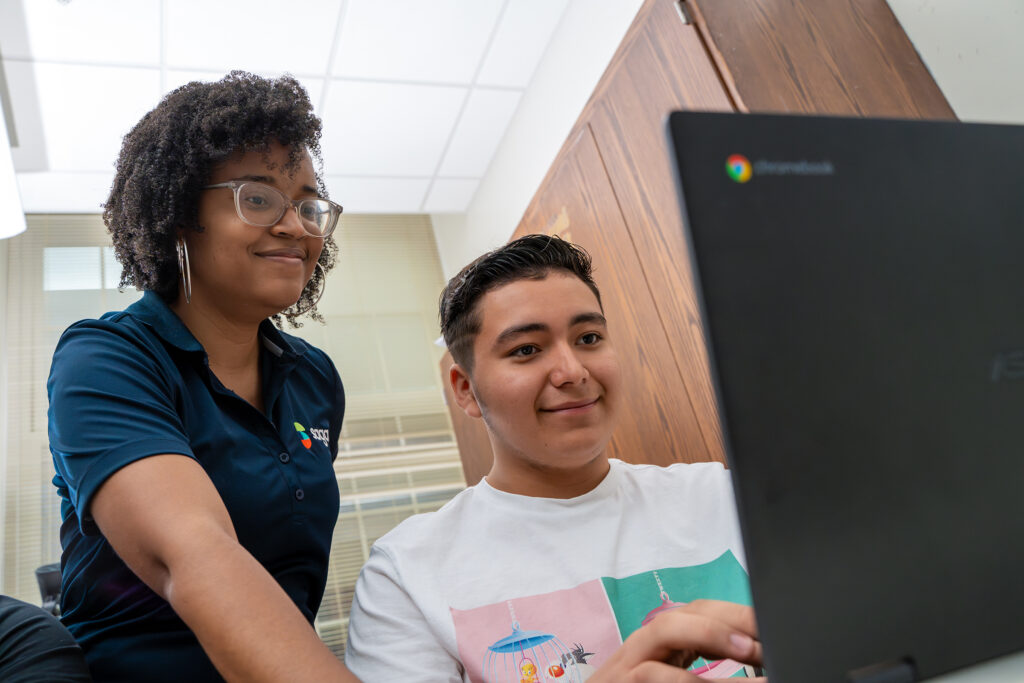
The Education Lab, in partnership with Chicago Public Schools (CPS) and Saga Education, evaluated a pilot of a fully-remote, high-dosage tutoring math intervention for high school students enrolled in CPS Options schools.
Challenge
High-dosage tutoring has proven to be an effective and cost-effective model for improving high school student math outcomes. However, the model can still be cost-prohibitive to school districts. Additionally, given the impacts of the COVID-19 pandemic, there is an increasing need to find alternatives to traditional in-person instruction, particularly for students facing significant barriers to engaging with school, such as those in Options schools, also known as alternative schools in CPS.
Opportunity
The Education Lab partnered with Saga Education to pilot and learn from a completely online, remote learning version of their high-dosage math tutoring model that was implemented in Options Schools, as part of the Chicago Student Success Initiative (CSSI). This approach was developed to try to meet students where they are and address student mobility. The goal of the partnership was to understand whether this new model could be feasibly implemented and delivered with fidelity in an alternative school setting to improve the math outcomes of Options school students. The University of Chicago Education Lab provided descriptive information on takeup and dosage to program providers and school partners to inform implementation.
Project overview
During the 2020-22 academic years, Saga Education implemented the virtual, remote learning version of their math tutoring model (the “Saga Online” model), which provided virtual tutoring in nine CPS Options schools. The program was adapted to the needs of Options students, who experienced higher rates of mobility than non-Options students, and who expressed a desire for more flexible scheduling. Under this remote model, participating students received three to five hours per week of individualized, high-intensity math tutoring from a Saga tutor via an online platform, Google Classrooms, during the school day. Saga tutors coordinated with teachers at each school to align tutorials with the content of students’ regular math classes and personalize tutorials to address students’ individual learning needs and gaps. The Saga Online model maintained a student-tutor ratio of approximately 3:1 for each tutor. Saga Education and school administration determined who would be offered Saga Online programming based on several factors, such as which students needed additional support to complete their math credit requirements.
The Education Lab worked closely in collaboration with Saga Education and CPS to ensure the successful implementation of the Saga Online model with Chicago Public Schools and Options Schools partners. After the pilot ended, all schools participating in the Saga Online model chose to bring back Saga supports for the 2022-23 academic year. CPS and Options schools providers worked closely to ensure that students were able to fully engage with the Saga Online programming and that the supports provided by Saga are sustainable for the coming years.
The Education Lab is continuing to work with Saga Education, as well as other tutoring providers, to continue to explore how virtual tutoring, like the model delivered through Saga Online, may be able to support in accelerating student learning as schools and districts work to personalize instruction to best meet students’ needs.
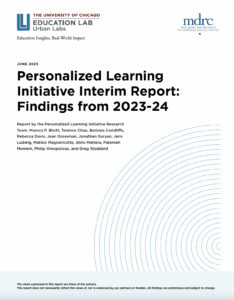
Personalized Learning Initiative Interim Report: Findings from 2023-24
The latest report by the PLI research team shows positive impacts from many types of tutoring–both more and less expensive tutoring models–across the country. These interim findings ought to encourage the field to stay the course in implementing high dosage tutoring, while improving dosage to yield greater learning gains for students.
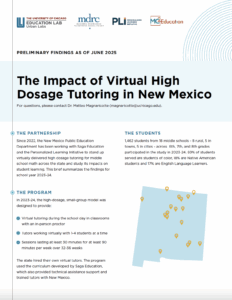
The Impact of Virtual High Dosage Tutoring in New Mexico
Since 2022, the New Mexico Public Education Department has been working with Saga Education and the Personalized Learning Initiative to stand up virtually delivered high dosage tutoring for middle school math across the state and study its impacts on student learning. This brief summarizes the findings for school year 2023-24.
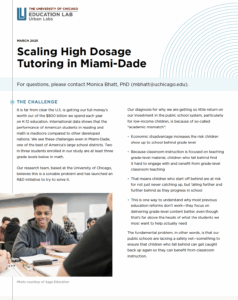
Scaling High Dosage Tutoring in Miami-Dade
In the 2023–2024 school year, the Education Lab launched a partnership with Miami-Dade County Public Schools to deliver in-school, intensive math tutoring. This brief highlights preliminary findings from the first year of implementation.
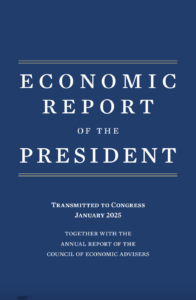
2025 Economic Report of the President
This report cites results from the Education Lab’s study of a high-dosage tutoring model–what we call “Saga Technology”–which found that substituting some tutor time with educational technology can reduce costs by one-third and halve the number of tutors needed without compromising effectiveness.

